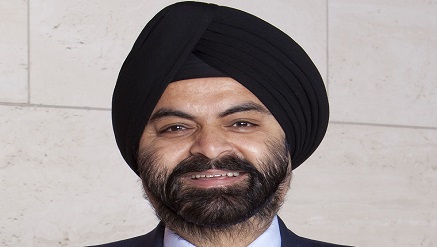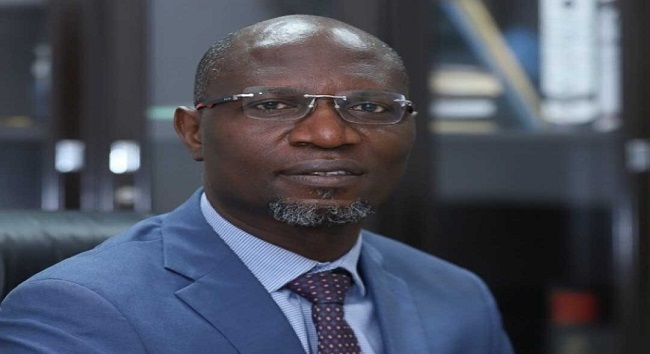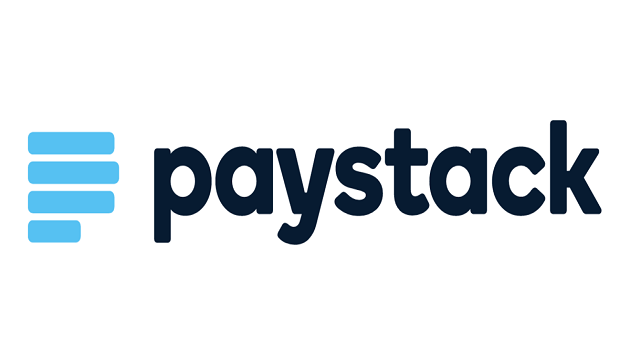E-Financial
Technology, Partnership Approach Driving MasterCard Financial Inclusion in 2014

MasterCard’s technology combined with increased engagement of governments is helping drive greater expansion of financial inclusion.
Public-private partnerships, such as the social security program in Pakistan MasterCard announced last week , offer citizens new opportunities to join the financial mainstream.
Around the world, innovations such as prepaid and mobile payments combined with biometrics are enabling more people to take advantage of formal financial services.
This is especially apparent in Africa where MasterCard was recently recognized by The African Banker for its work extending financial inclusion across the continent.
MasterCard’s broad-based collaboration with public and private sector entities is quickly bringing the benefits and security of electronic payments to the continent’s largest economies, where financial exclusion is still prevalent.
•MasterCard’s work with the South African Social Security Agency has helped showcase the impact of delivering government funds via electronic payments and encouraged other governments to explore these solutions.
•In Nigeria, the government launched a national ID program that combines a biometric identification solution with a prepaid payment functionality powered by MasterCard and is the broadest financial inclusion initiative of its kind on the African continent.
•In Egypt, MasterCard partnered with the National Bank of Egypt and Etisalat to unveil the first Arabic mobile money program that enables subscribers to transfer money via their phone.
Earlier this year, Ajay Banga, MasterCard president and CEO set the tone on the private sector’s role to provide broader access to financial services for the 2.5 billion adults who lack a simple bank account. “While the risks of not addressing financial inclusion are profound, the benefits are undeniable,” said Banga. “If it’s done well, it can help grow an economy that’s more equitable, sustainable and inclusive.”
But, leading on financial inclusion isn’t new to MasterCard or limited to Africa.
In fact, MasterCard has programs designed to bring financial access to over 350 million people around the world including:
•In Brazil, MasterCard’s joint venture with Telefonica created Zuum, a mobile money solution to make deposits or transfers and pay bills easily and securely;
•In Vietnam, a partnership with partnered with Viettel and Military Bank to develop a prepaid card linked to the Viettel BankPlus wallet;
•In India, a collaboration with Beam launched a mobile companion prepaid card that allows mobile wallet consumers to transact at physical merchants, online and access ATMs;
•In Turkey, together with the Turkish Government and DenizBank, MasterCard introduced a new Social Aid Card to bring innovation and efficiency to Turkey’s welfare service; and
•In Canada, a collaboration with SelectCore and the City of Toronto launched the City Services Benefit Card, a prepaid card program enabling Toronto residents to instantly receive their Ontario Works benefits through an EMV chip and PIN prepaid MasterCard.
Throughout 2014, MasterCard has continued to lead efforts that expand financial inclusion:
•Issuing new payroll card standards in the United States to help employees take full advantage of the benefits of having their paycheck electronically deposited;
•Launching the MasterCard Center for Inclusive Growth to foster collaborative relationships between academia, governments, nonprofits, the social design community, and the private sector that advance research and investment in sustainable economic growth;
•Partnering with the Inter-American Development Bank to promote economic inclusion in Latin America & the Caribbean;
•Co-authoring “Banking a New Generation” with Child Youth Finance International to help financial institutions, NGOs and governments co-create appropriate and innovative banking and payment products for young people;
•Leading conversations on Financial Inclusion with the World Economic Forum in Davos, Colombia, Nigeria and Philippines; at the China Development Forum; and with the World Bank;
•Conducting the Road to Inclusion study in India, Indonesia, Vietnam, Philippines, Egypt, and Nigeria that challenges previously-held notions of the unbanked; and
•Continuing to partner with the Better Than Cash Alliance, an organization that works with governments, the development community and the private sector to move towards electronic payments in emerging economies as a pathway to greater financial access.
“We must dispel the myths surrounding financial inclusion,” said Banga.
“The 2.5 billion adults without access to financial services are disproportionately women and young people and include many who are employed or living in urban centers. And, there are at least 44 million unbanked or underbanked people in the United States, so clearly financial inclusion is needed in all markets, not just the developing world.”
E-Financial
SEC Hikes Minimum Capital Requirements for Market Operators After a Decade

The Securities and Exchange Commission (SEC) has revised the minimum capital applicable to all categories of regulated capital market entities after 10 years.

The minimum capital review, according to the SEC, is informed by the need to strengthen market resilience, enhance investor protection, align capital adequacy with the evolving risk profile of market activities, and ensure that regulated entities possess sufficient financial capacity to discharge their obligations in a sustainable manner.
“The revised Minimum Capital framework seeks to: enhance the financial soundness and operational resilience of market operators; align capital requirements with the scope, complexity, and risk exposure of regulated activities; promote market stability and systemic risk mitigation; and support innovation and orderly development of new market segments, including digital assets and commodities markets,” SEC said in a January 16 circular to market operators.
The SEC circular was sent to all entities regulated by the Commission, including but not limited to core and non-core capital market operators; market infrastructure institutions; capital market consultants; financial technology (FinTech) operators; Virtual Asset Service Providers (VASPs); and Commodity market intermediaries.
All affected entities are required to comply with the revised Minimum Capital Requirements on or before June 30, 2027, the circular said.
“Entities that fail to meet the prescribed requirements within the stipulated timeline shall be subject to appropriate regulatory sanctions, including suspension or withdrawal of registration, as may be determined by the Commission,” SEC said.
Tier-1 Portfolio Managers (Full Scope) involved in the management of Collective Investment Schemes (CIS) and Alternative Investment Funds (Private Equity, Venture Capital, Infrastructure Funds etc) above N20 billion Net Asset Value (NAV), or discretionary and Non-Discretionary Private Portfolio Management Services above N20 billion Assets under Management (AuM), or exposure to foreign instruments up to 40 percent of the NAV are now required to have a minimum capital of N5 billion as against N150 million.
“Any Fund and Portfolio Manager with NAV/AuM of more than N100billion should have a minimum of 10 percent of the NAV/AuM as capital,” SEC added.
For the Tier-2 fund/portfolio managers (Limited Scope) who are in the business of management of Collective Investment Schemes with limited pooled fund creation of not more than 10 times the required capital (N20 billion) on Net Asset Value (NAV), or discretionary and non-discretionary private portfolio management services of not more than N20 billion, or those exposure to foreign instruments of not more than 20 percent of the NAV, now require N2 billion as minimum capital as against low of N150 million.
Likewise, broker-dealers whose services include: client execution, proprietary trading, margin/securities lending and advisory services no longer require N300 million minimum capital to operate but N2 billion.
The SEC said the minimum capital review from 2015 low is in line with its mandate under the Investments and Securities Act 2025 to regulate and develop the Nigerian capital market.
Also, Tier 1 issuing houses who do non-interest finance services, advisory & arrangement services but no underwriting now require N2 billion as against N200 million; while Tier 2 –issuing houses with underwriting and offers a ‘one-stop-shop’ for issuers, provides underwriting services, and renders advisory and product development services require N7 billion minimum capital for this business as against N200 million.
Also, the minimum capital requirement for brokers (client execution only) has been jacked up from N200 million to N600 million, while that of dealers (proprietary trading only) has been moved from N100 million to N1 billion.
Broker-Dealers’ (client execution, proprietary trading, margin/securities lending and advisory services) has been raised from N300 million to N2 billion, while Sub-Brokers’ (Digital) from N10million to N100million; Sub-Broker (Corporate) has been increased from N10million to N50 million. Also, sub-brokers’ (Individual) now need N10 million minimum capital for the business as against N2 million while inter-dealer brokers require N2 billion as against N50 million.
E-Financial
SEC Partners Police in Nationwide Crackdown on Ponzi Schemes, Crypto Frauds

Securities and Exchange Commission (SEC) and the Nigeria Police Force have forged an alliance against illegal scheme operators, investment frauds, and cryptocurrency frauds in a bid to protect the hard-earned savings and the financial dreams of the Nigerian people.

Dr Emomotimi Agama, director-general of the SEC, stated this during a meeting with Kayode Egbetokun, Inspector General of Police, held in Abuja.
Agama said the SEC, as the sentinel at the gate of Nigeria’s formal capital markets, had the mandate to protect investors, maintain fair, efficient, and transparent markets, and promote the growth of a vibrant economy built on trust, which is done by setting rules, licensing operators and market surveillance.
He, however, stated that the Commission faced adversaries who operate in the shadows, outside regulated gates by exploiting the trust of people and promising miraculous returns such as 200 per cent in 30 days.
“Currently, there is a gap, a seam between identification and enforcement that these scammers exploit. Today, we aim to close that gap permanently. Therefore, we propose a robust, institutionalised collaboration with the following pillars: Joint Intelligence and Operations Task Force: Capacity Building and Knowledge Transfer; Streamlined Processes for Enforcement and National Public Awareness Campaign,” he stated.
The SEC DG advocated, “the establishment of a dedicated SEC-NPF team that combines market intelligence, forensic accounting, and understanding of complex financial schemes with investigative and intelligence-gathering capabilities. This team will be the rapid-response unit to new frauds.”
Agama also sought the permission of the IGP to go into a Memorandum of Understanding with the Cyber Security Unit of the Police Force in a bid to ensure that cyberspace is safe for all Nigerians
In his response, the IGP Kayode Egbetokun assured the SEC team that the Nigerian police Force is ready to collaborate with the Commission, strengthen partnership in all the ways possible, and ensure that the Commission achieves its aims.
He said, “Your role in the Securities and Exchange Commission is very crucial to the Nigerian Economy, and with our supervision and support from the government, we will ensure economic recovery and growth. If the police unit in SEC is strengthened, it is going to make such an impact on your enforcement drive. What you said speaks so much to your determination to ensure effective drive in the Capital market, and when we can achieve effective enforcement, it comes with so many benefits.
Egbetokun also congratulated the Commission on the recent achievement of the N100 trillion market capitalisation mark, adding that it will aid economic growth and development.
E-Financial
Paystack Expands Beyond Payments into Banking

Nigerian fintech giant, Paystack has taken its boldest step yet beyond payments, acquiring Ladder Microfinance Bank. The fintech giant has quickly rebranded its new acquisition as Paystack Microfinance Bank (MFB) in a strategic shift that could reshape how African businesses access credit, deposits, and embedded financial services.

After nearly a decade building the backbone of online payments in Nigeria, the deal gives Paystack regulatory cover to hold deposits, lend directly to businesses and offer banking-as-a-service products.
More importantly, Paystack’s chief operating officer, Amandine Lobelle, highlighted that it allows the company to exert greater control over the trillions of naira that already flow through its platform every month, turning transaction data into a powerful engine for credit and treasury products.
“After 10 years of building payment infrastructure and going deep, we realised that businesses needed more than just getting paid to grow. We wanted to leverage the expertise that we have built over the last decade to continue to address some of the pain points that businesses have,” said Lobelle.
Paystack MFB will operate as a sister company to its payments business, initially focusing on working capital loans, merchant cash advances, overdrafts and term loans for small and medium-sized enterprises.
By using real-time payment data to underwrite loans, Paystack believes it can offer faster approvals and more accurate risk pricing than traditional lenders, directly tackling Nigeria’s estimated $32 billion small business financing gap.
For Paystack, founded in 2016 and acquired by Stripe in 2020, the move marks a strategic evolution from being just a payments processor to becoming a core part of the financial operating system for African businesses.
Today, Paystack supports more than 300,000 businesses across Nigeria, Ghana, and South Africa and has become one of Africa’s most trusted fintech infrastructure providers.
The banking licence is a game-changer as payments, once Paystack’s main growth engine, are increasingly commoditised across Africa. Lending, deposits and treasury services offer deeper margins, stickier relationships and long-term sustainability.
By layering banking services on top of payments, Paystack is betting that infrastructure depth will outperform flashy consumer scale.
However, the move also throws the Nigerian-born fintech giant into fierce competition with digital -first lenders and neobanks such as Moniepoint, Kuda, OPay and PalmPay, which already operate at massive scale. Still, Paystack’s strength lies in its merchant-first focus and developer-friendly APIs.

 E-Financial2 days ago
E-Financial2 days agoPaystack Expands Beyond Payments into Banking

 E-Financial2 days ago
E-Financial2 days agoSEC Partners Police in Nationwide Crackdown on Ponzi Schemes, Crypto Frauds

 E-Business2 days ago
E-Business2 days agoNigeria Targeted with 4,622 Cyber-attacks Per Week in December 2025

 General News2 days ago
General News2 days agoEFCC to Use Space Technology to Boost Asset Tracking, Investigations

 E-Financial2 days ago
E-Financial2 days agoFG Halts Tax Guidelines Amid Uncertainty Over Final Laws – Oyedele

 E-Financial2 days ago
E-Financial2 days agoPaystack Buys Microfinance Bank, Enters Nigeria Banking Arena

 News2 days ago
News2 days agoFG Directs Banks, Fintechs to Remit VAT on Service Fees

 General News2 days ago
General News2 days agoHow to Stay Safe Online During Sales Periods



























